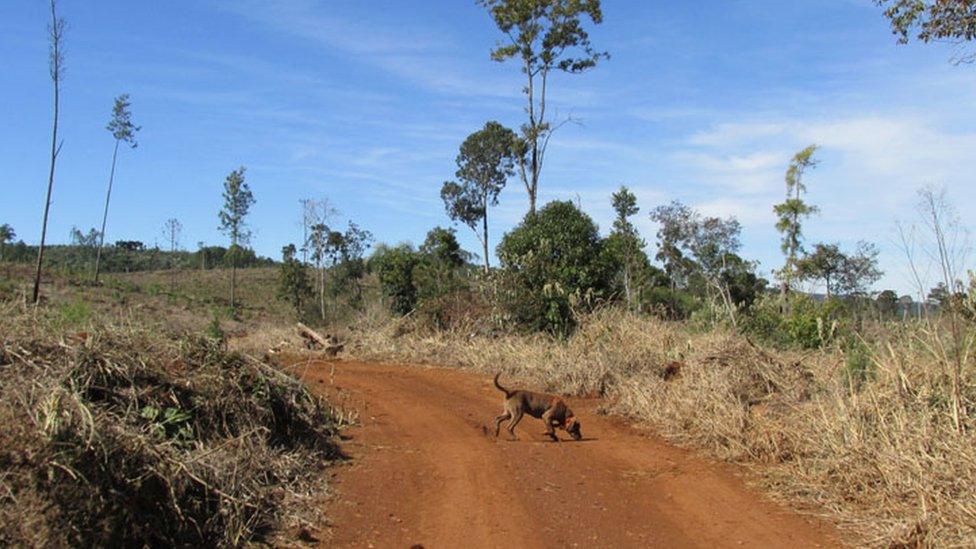Poo smelling dog, Train, saving big cats in Argentina
- Published
- comments

Dogs love smelly things and if you've got your own four legged friend, you'll know that some of the stuff they like to stick their nose in can be pretty embarrassing, or gross.
So you might be surprised to learn that for Train, a 12-year-old Chesapeake Bay retriever in Argentina, his owner actively encourages him to smell poo!
Yes that's right, the smellier the better. Train is using his super sensitive nose to sniff out the poop of some of South America's most endangered big cats.
Train's job might sound yucky, but it's actually really important, the more big cat samples Train finds the better, as it means researchers can work out where different animals are living at the moment.
Yes, not only is Train identifying the types of cat the poo came from, but also the animals the cat ate and digested.
It is hoped that this work will mean that more species of wildlife can be protected in a large area of land that spans the Argentinean, Paraguayan and Brazilian borders.
By recognising this corridor of land which contains lots of wildlife, it will mean the animals like pumas, jaguars, ocelots, oncillas, and bush dogs living there will be granted protection from deforestation and poaching.
Argentina has lost 14 percent of its tree cover between 2001 and 2017, according to Global Forest Watch. Within those forests live animals threatened with extinction. There is only about 10,000 oncillas left, while bush dogs sightings are incredibly rare and it's estimated there could be fewer than 100 living in the wild.
Train and his owner Karen DeMatteo
So it means Train has a busy job, but luckily he can cover more ground than a team of humans ever could. In ten years, he's has managed to identify almost a thousand cat samples.
When Train finds something, he stands next to it and cocks his head. His ears will prick-up, and he'll wag his tail. He's then rewarded with play time for his good work.
The data is then gathered from the poo by scientists, it helps them learn how many of the animals are male or female, that information is put together with GPS notes to understand how species are moving.
Train, who some call the Big Brown Monster or T for short, became a conservation detection dog in 2009, when he was about 2 years old. Since then he has visited Argentina with his owner, research scientist Karen DeMatteo, every other summer, scouting for poop.
It's not the most glamorous job, but someone has to do it!
- Published13 March 2019
- Published19 November 2019
